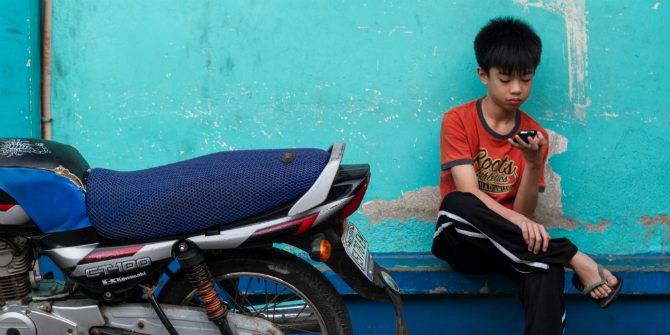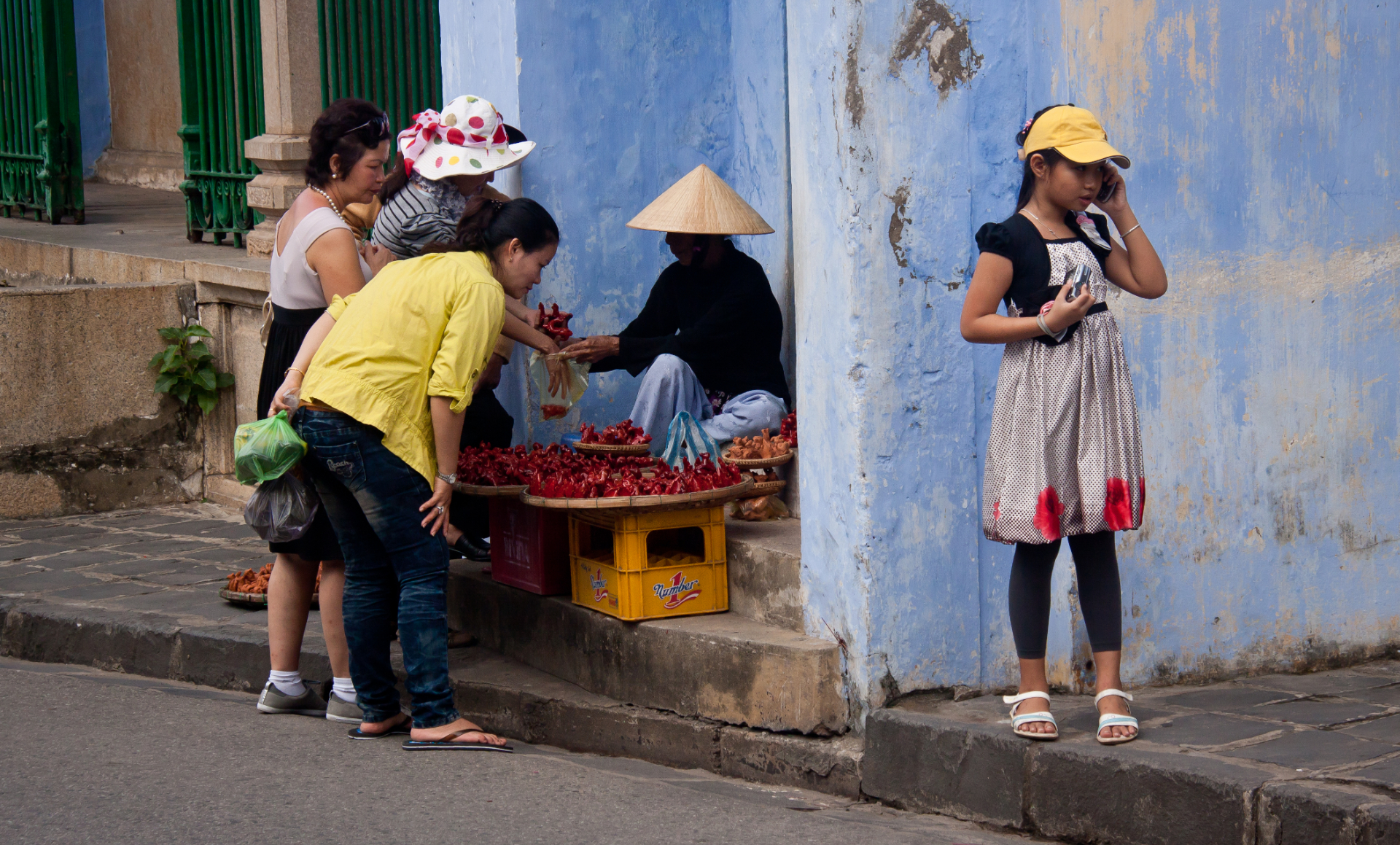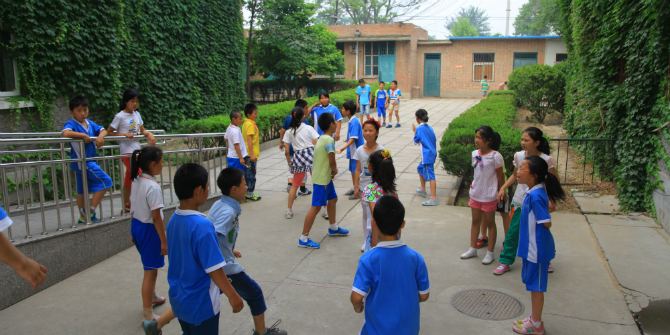 With growth in smartphones and social media use in places such as the global south, we see the emergence of new challenges for the practice of parenting. These include decisions about how to monitor or control children’s access and use of technologies, as well as broader questions about where responsibility lies. For www.parenting.digital, Heather Horst, Romitesh Kant and Eliki Drugunalevu discuss the tensions between regulation and responsibility that emerged in their documentary film “Parenting in the Smart Age: Fijian Perspectives”. The film is available on YouTube under a Creative Commons License.
With growth in smartphones and social media use in places such as the global south, we see the emergence of new challenges for the practice of parenting. These include decisions about how to monitor or control children’s access and use of technologies, as well as broader questions about where responsibility lies. For www.parenting.digital, Heather Horst, Romitesh Kant and Eliki Drugunalevu discuss the tensions between regulation and responsibility that emerged in their documentary film “Parenting in the Smart Age: Fijian Perspectives”. The film is available on YouTube under a Creative Commons License.
It’s Friday evening in the Senikau family and the kids have returned from school. As with many aspirant families in Suva, the three children aged 10, 12 and 14 are home with their mum and two of their aunties who plan to spend their evening sitting around listening to music and chatting over tea, a long bun and butter while scrolling through their respective Facebook newsfeeds. Their dad has not arrived home yet because he joined his workmates to listen to live music over a drink at the Fiji Club. Having traded their school uniforms for casual clothes, mobile phones and tablets, the two daughters spend their time taking pictures and videos of each other as they pose, sing songs and dance to the latest pop songs; they sometimes share the videos that are ‘good enough’ with their cousins and friends on Viber or Messenger. Meanwhile, their younger brother sits in the corner happily playing video games on his tablet. A night of relative freedom, Fridays represent a stark contrast to the strict regime of homework and limited screen time during the rest of the week.
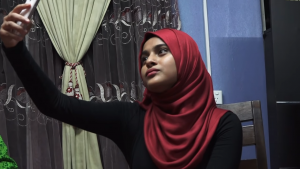 As we outline in our documentary film “Parenting in the Smart Age: Fijian Perspectives”, the growth in smartphone and social media usage (68% cent of Fijians use a smartphone and 55% use social media) presents Fijian parents with novel challenges for raising their children in a rapidly changing media ecology. Parents now grapple with questions about what, when and how their children use particular platforms, and the ways these change as their children gain more experience. Similar to debates around the right amount of ‘screen time’ in countries such as the US and Singapore, Fijian parents are looking for guidance about how to manage their children’s use of smartphones and other technologies. Although there has been a growth in the development of digital parenting resources, most of these resources and recommendations draw upon media effects research in North America and Europe where there are different values around parenting. Although culturally– and class-specific accounts of media practices in families are emerging in countries such as Singapore, Jamaica and elsewhere, parents in Fiji are developing new rules and forms of regulation by modifying traditional Fijian values around communication.
As we outline in our documentary film “Parenting in the Smart Age: Fijian Perspectives”, the growth in smartphone and social media usage (68% cent of Fijians use a smartphone and 55% use social media) presents Fijian parents with novel challenges for raising their children in a rapidly changing media ecology. Parents now grapple with questions about what, when and how their children use particular platforms, and the ways these change as their children gain more experience. Similar to debates around the right amount of ‘screen time’ in countries such as the US and Singapore, Fijian parents are looking for guidance about how to manage their children’s use of smartphones and other technologies. Although there has been a growth in the development of digital parenting resources, most of these resources and recommendations draw upon media effects research in North America and Europe where there are different values around parenting. Although culturally– and class-specific accounts of media practices in families are emerging in countries such as Singapore, Jamaica and elsewhere, parents in Fiji are developing new rules and forms of regulation by modifying traditional Fijian values around communication.
Despite debates among adults about the use of social media like Facebook during talanoa (storytelling) sessions and drinking kava (a local drink made from a native plant) among adults, many Fijian parents often forbid the use of mobiles at the dinner table, church and other collective social gatherings. For example, Vasiti, an iTaukei (indigenous Fijian) mother in our film, restricts her six children’s use of the internet and ‘screen time’ to the weekend. When her children turn 18, she no longer restricts and regulates them and, instead, starts to rely upon them to model and help monitor younger siblings’ use of tablets and smartphones.
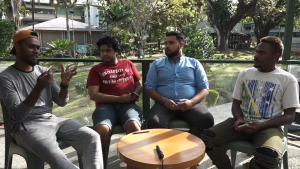 Given the hierarchy associated with age and authority in traditional Fijian families and the use of communication for social control, it is common for parents to keep their children’s passwords so they can review the content that they are posting. Many parents restrict the use of specific platforms such as Instagram or Snapchat because they are concerned with the kinds of images being shared. This also extends to Indo-Fijian families such as a mother in our film named Natasha who created nuanced rules including restricting her children from friending classmates so any conflicts at school do not impact their lives outside of school.
Given the hierarchy associated with age and authority in traditional Fijian families and the use of communication for social control, it is common for parents to keep their children’s passwords so they can review the content that they are posting. Many parents restrict the use of specific platforms such as Instagram or Snapchat because they are concerned with the kinds of images being shared. This also extends to Indo-Fijian families such as a mother in our film named Natasha who created nuanced rules including restricting her children from friending classmates so any conflicts at school do not impact their lives outside of school.
Fijian parents also express greater anxiety over the regulation of their daughters’ smartphone and social media use, a pattern that reflected the clear delineation of gender roles in traditional Fijian society and other countries. Over the past few years more incidents of harassment and bullying in digital spaces are occurring, including the increasing number of photographs and videos of girls being circulated online without consent.
While many of the young men in our film report having relative freedom to ‘roam’ online, everyone acknowledges that girls and daughters are subject to stricter regimes and are the ones to blame when things go wrong. As one of the young women in our film observes,
No one questions why a boy asked for the photo or video in the first place, why he did not keep it private (which was the original intention) and why he was not admonished for circulating it. Instead, they feel that the teenaged boys involved in these incidents are commended for eliciting the photo or video and any responsibility for their role in spreading the images or videos are easily explained away as ‘just what boys do’.
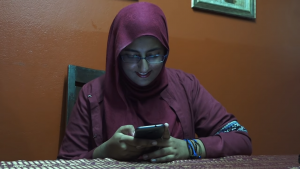 For these reasons, the question of responsibility and regulation is a dilemma for many of the participants in our study and film. Whether parents of sons or daughters, Fijian parents feel responsible for protecting their children from negative experiences. They often look to family members as well as leaders in their church and schools for guidance. Some parents wonder whether Facebook, their local telecommunications providers, or the police may also be responsible for managing exposure and risk online.
For these reasons, the question of responsibility and regulation is a dilemma for many of the participants in our study and film. Whether parents of sons or daughters, Fijian parents feel responsible for protecting their children from negative experiences. They often look to family members as well as leaders in their church and schools for guidance. Some parents wonder whether Facebook, their local telecommunications providers, or the police may also be responsible for managing exposure and risk online.
The Fijian government also asserted its regulatory role by legislating the Online Safety Act (2018). Based on this, a person found to be guilty of carrying out harassment online can be asked to publicly apologise, pay a fine, or even spend time in jail. Although at the time of our study there were few uses of the Act, many parents believe the bill could be effective and might even act as a deterrent for some people.
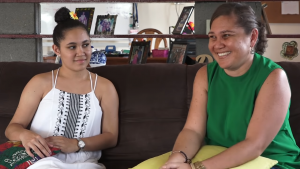 Yet there remains a distinct line between regulation and responsibility. The Online Safety Act ultimately offers regulation rather than responsibility and there is concern that the bill might be misused for political purposes especially given Fiji’s relatively recent history of military coups and dictatorships. Mobile telecommunications company representatives we talked to in our broader study of the moral economy of mobile phones in the Pacific noted that they can provide guidance through their corporate social responsibility (e.g. foundations and outreach) and can cooperate with the government to assist with resolving incidents. Companies like Facebook, sheltered from the concerns of parents and others in small island nation-states like Fiji, continue to hearken to their ‘net neutrality’ principles.
Yet there remains a distinct line between regulation and responsibility. The Online Safety Act ultimately offers regulation rather than responsibility and there is concern that the bill might be misused for political purposes especially given Fiji’s relatively recent history of military coups and dictatorships. Mobile telecommunications company representatives we talked to in our broader study of the moral economy of mobile phones in the Pacific noted that they can provide guidance through their corporate social responsibility (e.g. foundations and outreach) and can cooperate with the government to assist with resolving incidents. Companies like Facebook, sheltered from the concerns of parents and others in small island nation-states like Fiji, continue to hearken to their ‘net neutrality’ principles.
But ultimately people argue that the responsibility for regulating behaviour falls upon parents’ shoulders. As the debate following the launch of the film at the University of the South Pacific suggested, the responsibility, therefore, sits with the individual user and the moral community that is responsible for guiding young people – their parents and their families.
Notes
Parenting in the Smart Age: Fijian Perspectives (Creative Commons 2019 CC-BY-NC-ND) is a product of “The Moral Economy of Mobile Phones in the Pacific”, a Discovery Project funded by the Australian Research Council (DP140103773). Directed by Romitesh Kant, Heather A. Horst and Eliki Drugunalevu, the documentary film was made in collaboration with the University of South Pacific and the University of Sydney and the Executive Producers were Heather A. Horst and Robert J. Foster.
First published at www.parenting.digital, this post gives the views of the authors and does not represent the position of the LSE Parenting for a Digital Future blog, nor of the London School of Economics and Political Science.
Image credits: Parenting in the Smart Age: Fijian Perspectives


